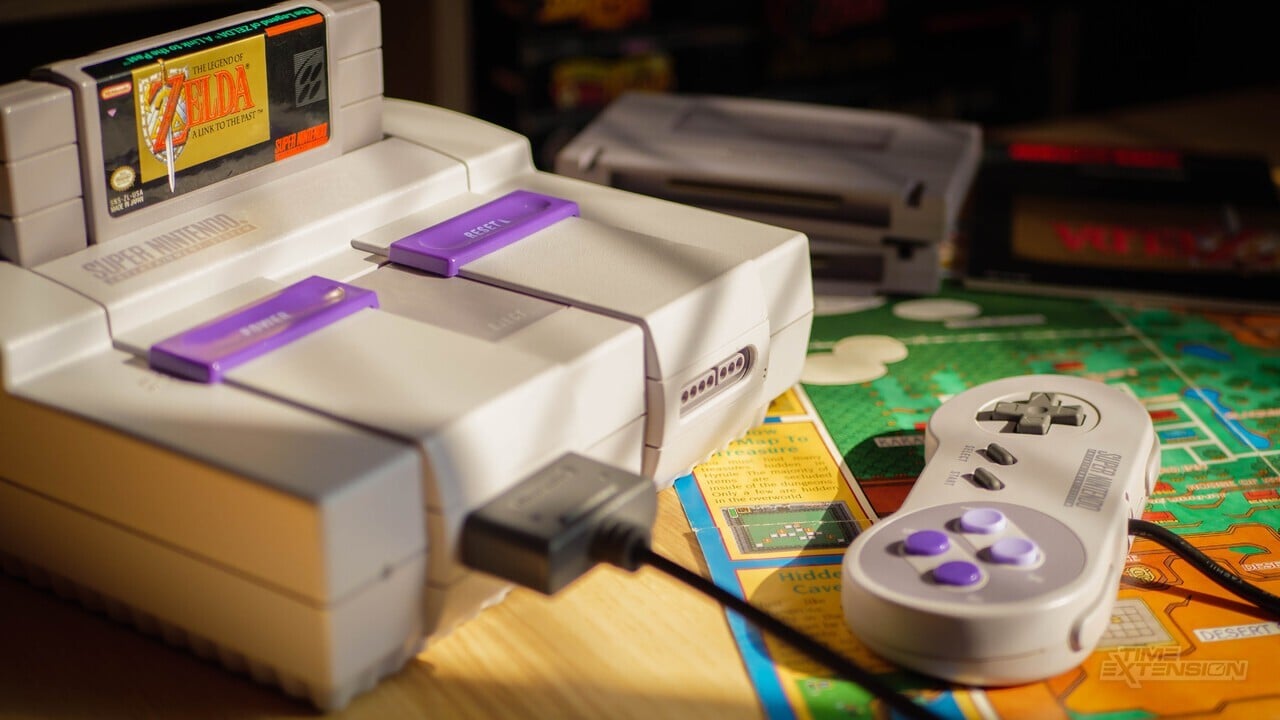What’s the Scoop?
An engineer named Voultar has created a mod called the ‘SNES 2CHIP Edge Enhancer’ that addresses one of the Super Nintendo Entertainment System (SNES)'s notorious issues — its blurry video output.
Key Points from the Mod:
- Innovative Approach: Unlike many modding solutions, Voultar’s SNES 2CHIP Edge Enhancer doesn’t rely on video amplifiers. Instead, it focuses on directly addressing the system’s DAC (Digital-to-Analog Converter) to improve image clarity.
- Installation Ease: The mod is relatively simple to install — a five-wire soldering process that can be handled by anyone with basic electronic skills.
- Broad Compatibility: Designed to work with all variants of the 2CHIP SNES console, it ensures a significant improvement across different hardware versions without requiring custom modifications for each model.
How Does It Work?
Voultar spent many hours analyzing and dissecting the internal components of the SNES’s DAC in order to understand its shortcomings. His approach was meticulous, ensuring that the mod would not compromise image quality based on specific game content or performance variability. Instead, it offers a consistent sharpening effect for RGB, S-Video, and Composite Video outputs.
Do you own a SNES? Are you thinking about using Voultar’s mod?



I mean… Isnt this pointless and entirely defeats the purpose of the pre-High Def consoles?
SNES (and other consoles, like genesis and NES and what have you), Were not made to have radically sharp pixel perfect graphics. They were made to be used on CRTs. The games were designed to take advantage of the natural antialiasing/blurring and shading that was inherent in how a CRT works to create the end product graphic on the screen.
These consoles were never meant to have extra sharp super stand out pixels. They look worse the sharper you make them. Just a comparison of CRT shots vs Emulation shows how much better and detailed they look due to the blurring and depth provided by the way CRTs work.
If someone wants to be revolutionary, they’d create a graphic mod that 1:1 recreates how the graphics looked on the CRT, with the depths, shading, blurring, etc.
One chip SNES already have super sharp pixels, this just brings 2 Chip SNES up to the standard set by the one chip models. This won’t make them look sharper than one chip SNES on a CRT, but it will make them look more accurate on them, and it will look better on modern displays also.
Making SNES images sharper and clearer is the opposite of more accurate. as I already said in the previous post.
Its not how the game is supposed to look. Its antithetical. it gives you worse graphics that are miles away from what it was supposed to look like.
This isn’t an HDMI mod that pulls from digital signal and outputs to digital, or an RGB mod that bypasses the analogue hardware.
It’s a mod that corrects poor image in some specific models of SNES to bring them to the standard of other models of SNES. Details here: https://www.retrorgb.com/snesversioncompare.html
I understand what you’re getting at because it’s a common refrain, but the fact that some models of SNES do not exhibit this behaviour strongly indicates it was not how it was supposed to look, and is caused by poor manufacturing tolerances and/or aging caps.
Not all degraded video quality was the intended vision for the device, unless your argument is that a fraying composite cable that you have to jiggle around and a controller with a broken “R” button is also core to the experience. That may have been YOUR experience as a kid, that doesn’t make it the intended vision of the creators.
It’s a fine line, but this falls on the side of early manufacturing errors and not intention.
There is no “supposed to look”. There are many variations of displays, and not all versions of the SNES were the same. Not all CRTs are the same, either. Not all development environments looked anything like an actual SNES–they may have used very sharp computer monitors.
It’s entirely subjective, usually based on whatever you personally grew up with.
Yeah, hard agree. There are likely technical benefits to being able to extract a pure image from a real snes, but art-wise it’s not for the best.
I fully agree but disagree at the same time. I think the better way to look at it is that now the end user has a choice. I grew up with emulation and the actual console, and appreciate both approaches. I have a snes, a CRT, as well as a flat screen tv with a scaler. I like being able to choose how I can experience it; like I said, I like both. While it may not be end user accurate, it’s really cool knowing there’s an option for people wanting those crisp pixels.
Not at all. Just because a CRT is inherently fuzzy, doesn’t mean you shouldn’t have a nice sharp source image.